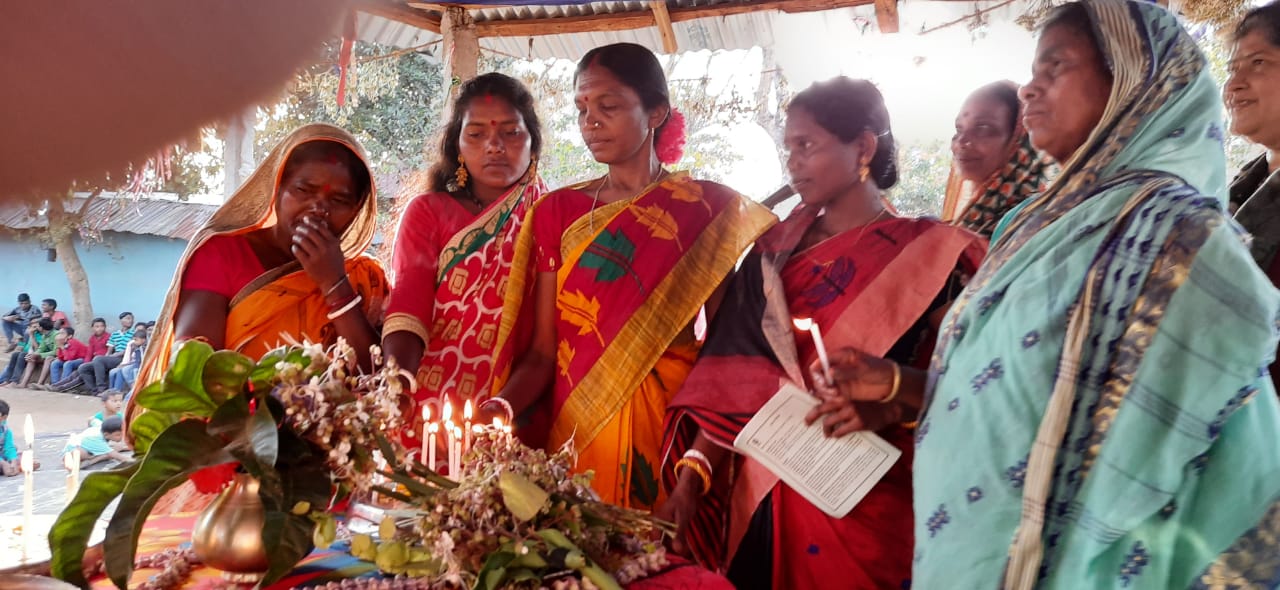
Designing new rituals to challenge and change Gender Stereotypes
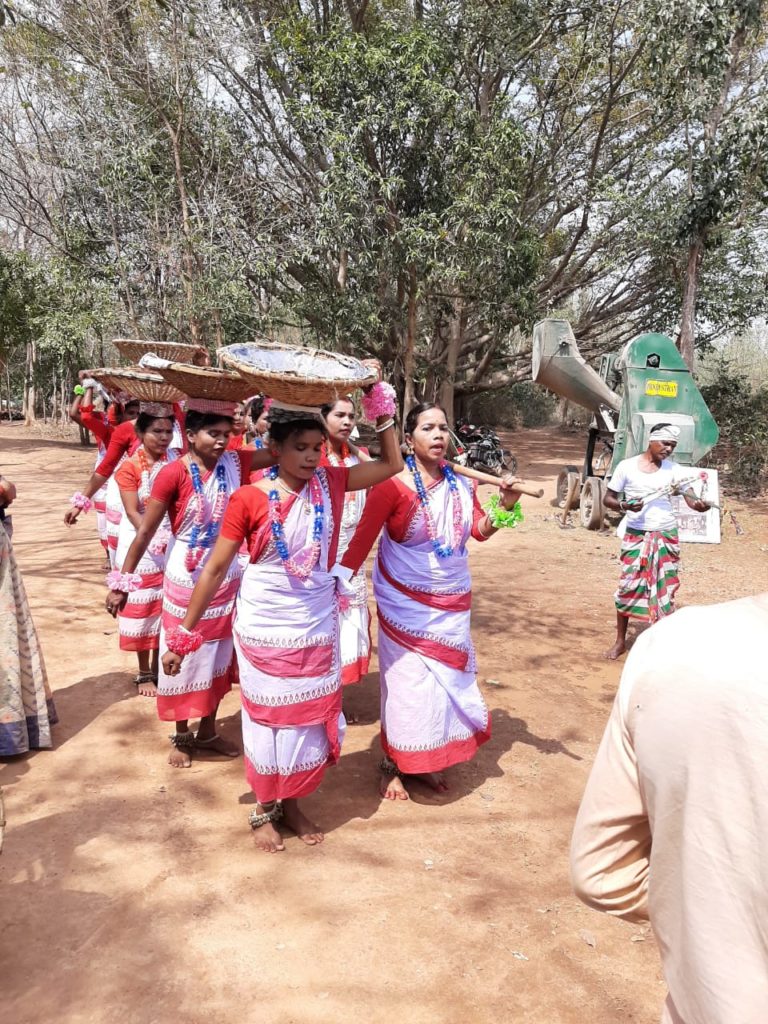
Hi friends! This is my first blogpost. Amidst the scare of Covid 19 Corona virus I was thinking what should I write in my maiden post. What can be more or even somewhat relevant to the people in these days!
I was just thinking how was our life before the attack of Covid 19….How was the society dealing with their people? How the women and men treated? Did they get equal opportunities to lead a long and healthy life with dignity and self respect? Or millions of women in the world had to confine themselves within the four walls of their home? Why such forced isolation and discrimination? What were the threats? And how long is it persisting?
It is reported that At least 117 million girls around the world demographically go “missing” due to sex-selective abortions. The world is shaking with about 7000 deaths due to Covid 19 virus but what about the life of these unborn “girls”? Why In India the female child population in the age group of 0-6 years declined from 78.83 million in 2001 to 75.84 million in 2011? Why 60 percent girls in the age group between 15 – 19 are anemic, which is a contributing cause of increased age-specific mortality among female adolescents? Why a dowry-related crime causes the death of a woman every 90 minutes, or 1.4 deaths per year per 100,000 women in India? Why there are more than 20% gaps between the literacy rates among the boys and girls? Why the Labor Force Participation rate for women in India is only 23.3% and why women are paid 34% lesser than men in India? Why Women hold only 12.8% of operational holdings in India? Why only 11% of the serving judges in India are women? Why India has only 13% women as the secretary rank officers in the central government? Why only about 14% of the Member of Parliaments in the Lok Sabha is women? And why the endless list of “Why” remains mostly unheard of and unanswered?
To understand such subordinate position of women across the Globe and India in particular we have to realize the difference between the terms sex and gender which we often use interchangeably. While sex is biologically determined gender is a social construct and is culturally determined. Consequently it has spatial and temporal influences, varies from culture to culture and changes over time. It is the society that assigns the stereotyped ideal roles for women and men, boys and girls. Generally women are assigned reproductive roles within their family. The untiring efforts that the women put to sustain their family and to maintain their families agriculture farm especially in the rural areas are never recognized as “Productive”. The social construct decides whether the women would have decision making power within her family or at the larger social context and issues. The mobility of a woman is restricted and so is her freedom of choices.
Over the past decades it was realized that a society and a country can not prosper by discriminating and confining half of its population. There have been movements world wide towards the cause of achieving gender equality. Legislation are passed to integrate women with the mainstream development process. New institutions are created, programs and projects are designed targeting the women.
We had just celebrated the International Women’s Day on the 8th March 2020 across the globe with the theme “I am Generation Equality: Realising Women’s Rights”. So the equality of opportunities and realizing the rights for women are still not achieved in this era of 21st Century. It is understood and realized over the years that we can not achieve the goal of Sustainable Development unless we empower and integrate women in all walks of life. The Sustainable Development Goal 5 aims at “Achieve Gender Equality and Empower all women and girls by 2030”.
There has to be some radical changes within the society to achieve the goal of SDG 5. And it requires initiatives at all the levels, from the macro level policy changes to the micro level grass root movements.
I am so happy to share with you some of the initiatives by the forest fringe villagers of Bankura and Jhargram districts of West Bengal to celebrate the International Women’s Day in their respective villages.
Aligning with the theme of this year the villagers of Debardanga village under Sarenga block in Bankura district have selected their theme as
নারীর সম্মান অধিকার এই আমাদের অঙ্গীকার …“Respecting women and ensuring their rights are our pledge”…..
What is unique and encouraging is the wholehearted support from the menfolk in organising the program hand in hand with the women. In a society that promotes a asymmetric power relations between the women and men it is of utmost importance to sensitise the menfolk first to empower the women. The traditional tribal community institution os headed by a Majhi in each village. In the hierarchy a Majhi Pargana is selected above a group of Majhis. All the social issues and social norms are controlled by the Majhi and Majhi Pargana who are always men. Women also cannot take part in the meetings of the Majhis.
But in Debardanga village the Majhi Pargana himself has written a theme song spreading the message of equality and dignity for the women. The song was sung by both the men and women of the village. The celebration marked the traditional dance and music performed by both the women and men together. There was no animosity, nor any threat of loosing power. Rather a feel good atmosphere was created within the entire village. The celebration itself symbolizes the value of mutual respect, reciprocity, dignity of labor and freedom of spirit.
The presence of the Gram Panchayat Pradhan (Head of the local Self Government) and panchayat member, school teacher, social workers and very uniquely the second officer of Sarenga Police station along with his women and men team members have added more value to the celebration, All of the dignitaries present stressed upon creating a world of equal opportunities, inclusion and empowering the women. And the same message was echoed by the community institutional heads and the commoners.
This micro level celebration at a remotely placed forest fringe village reiterated how important it is to design new rituals by integrating the social institutions to change the stereotypes, reinforce the message to challenge the age old practices and initiate the process of social change.

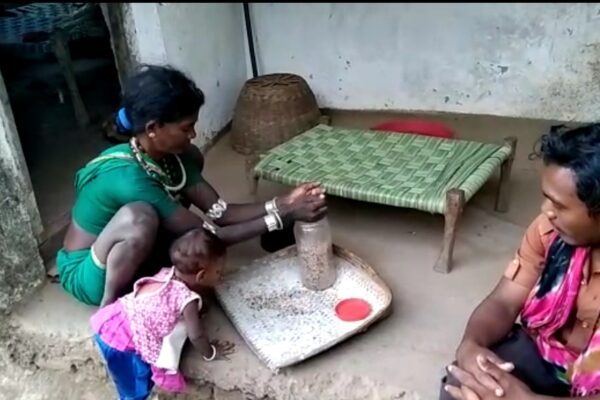
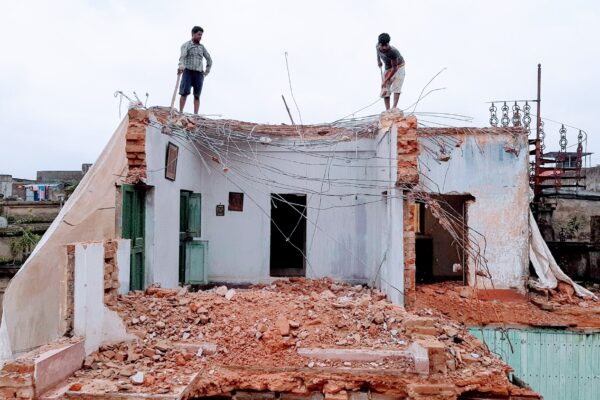
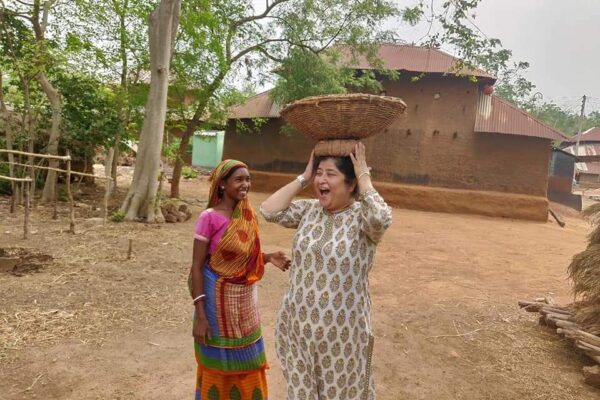
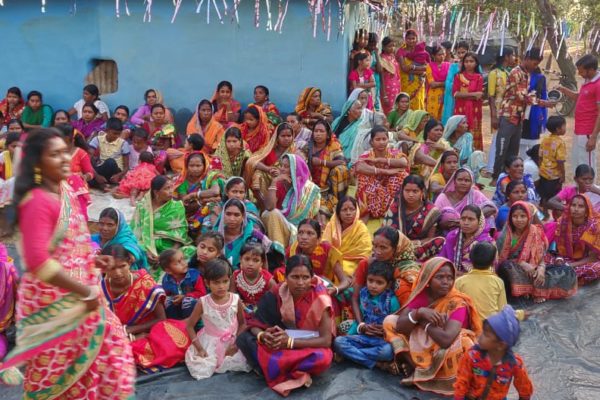
Chumki Piplai
I am proud of you, Raktima. Women empowerment is very much necessary for the present day situation. Women being the mother of the child reared for future citizens. Also as a family and social management.
Raktima Mukhopdhyay
Thank you Didi. Yes, women are in the core of making our world sustainable. It requires a concerted effort to include them in sphere of development as active partners. Need your suggestions for developing future strategies.
Sudipta Dey
Thanks a lot Madam for sharing us the precautions for COVID-19 in your post and in office campus as well.
Women are the backbone of our society. Very nice and informative post Ma’am.
Thanks again.
admin
Thanks Sudipta. You are one of the active partners in IBRAD in bringing the changes. Keep up your enthusiasm and commitment.
BHASWATI BANERJEE
Dear Madam
Its phenomenon and full of statistics which actually depicting how women as whole is mis treated and misinterpreted worldwide. We at the state of Urbanism equially placed in dismay with the rural ‘She’…
Its a great job you are doing and surely situation will advocate the better society for women oneday in all dimensions.
Keep posting..
admin
Thanks Bhaswati. Yes, though there are severe inequalities such stories keep us moving. It will be a pleasure to share such examples with you all.
Shree Bhagwan Roy
Sounds very interesting How was the response of younger children, particularly of boys. Did it develop a sense of cooperation?
admin
Yes the atmosphere was full of cooperation and mutual respect. It was very encouraging how the boys participated and appreciated the roles played by their mothers, aunts, sisters at home. The story will be followed next.
Sanchari Sen
Amazing!
Women empowerment is a necessity for the very development of the society
admin
Thanks for your encouragement Sanchari